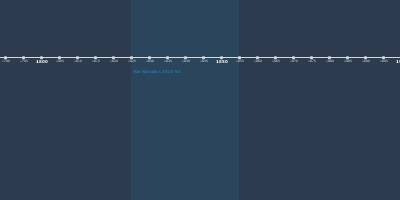Third Department in Opperation (1 jan 1826 ano – 1 fev 1880 ano)
Descrição:
Tasks:All orders and announcements in all instances of the higher police.
Information concerning the number of various sects and heretical religious groups existing within the state.
Information concerning the distribution of counterfeit money, stamps, documents, etc., the investigation and further prosecution of which is to remain in the jurisdiction of the Ministries of Finance and Internal Affairs.
Detailed information concerning all persons under police surveillance, as ordered.
The exile and arrest of suspicious or dangerous persons.
Economic and supervisory administration of all places of imprisonment in which state prisoners are kept.
All orders and instructions with regard to foreigners living in Russia, traveling in the country, or leaving it.
Information concerning all events, without exception.
Statistical information relating to the police.
I expedition
She was in charge of all political affairs - “subjects of the highest police and information about persons under police supervision”.
The expedition went through affairs that were of "especially important", regardless of their belonging to the field of activity of other expeditions. The expedition was engaged in the prevention of crimes against the emperor, the discovery of secret societies and conspiracies, was in charge of monitoring public opinion (“state of mind”) and compiling general and private reviews of the most important events in the country (“universally valid” reports), monitoring the social and revolutionary movement, the activities of individual revolutionaries, public figures, cultural workers, literature, science; the organization of a political investigation and investigation, the implementation of repressive measures (imprisonment in a fortress, a link to a settlement, deportation under police supervision), and monitoring the state of places of detention. The expedition was collecting information about the abuses of senior and local government officials,1866 ). Later, in the I expedition, there were only cases of “insulting members of the royal family” [3] [2] .
II expedition
She was engaged in schismatics, sectarians, counterfeiters, criminal killings, places of detention and the "peasant question" (the search and further processing of criminal cases remained with the Ministry of the Interior; those associated with counterfeiters were with the Ministry of Finance).
She supervised the activities in Russia of various religious denominations, the spread of religious cults and sects, as well as the administrative office of state political prisons: Alekseevsky ravelin , Peter and Paul Fortress , Shlisselburg Fortress , Spaso-Euthymius Monasteryand the Schwartzholm house. Organized the fight against official and especially dangerous criminal offenses. She collected information about the activities of public organizations, cultural, educational, economic, insurance societies, about various inventions, improvements, discoveries, as well as the appearance of counterfeit money, documents, etc. She was engaged in the consideration of complaints, petitions, denunciations and the preparation of reports on them. She supervised the decision of civil cases on the division of land and property, cases of marital infidelity, etc. She was engaged in the staffing of the III Division and the distribution of responsibilities between structural units [3] [2] .
III expedition
She was specially engaged in foreigners living in Russia, and the expulsion of unreliable and suspicious people.
From 1826 until the middle of 1866, the expedition monitored the stay of foreigners in Russia, controlled their arrival and departure, performing the functions of counterintelligence. From the middle of 1866, the functions of the First Expedition to monitor the social and revolutionary movement and to conduct inquiries on political affairs also passed to the III expedition. Since 1873 , in connection with the liquidation of the IV expedition, its functions in collecting information on incidents in Russia (including railways) were also assigned to the III expedition [3] [2] .
IV expedition
Conducted correspondence about "all incidents in general", was in charge of personnel, awards; engaged in the supervision of periodicals.
Collected information about all the important events in the country: speeches of peasants, unrest in cities, government events on the peasant issue, etc. The fourth expedition received information on crop types, food supplies for the population, fairs, trade, etc. as well as reports from the army during the military operations, about clashes and incidents on the borders of the Russian Empire. The expedition led the fight against smuggling, collected materials about abuses of the local administration, information about incidents (fires, floods and other disasters, criminal offenses, etc.). It was liquidated in 1873 [3] [2] .
V expedition
Main article: Censorship in the Russian Empire
Created on October 23, 1842 , was engaged in specially censorship .
The V expedition was in charge of dramatic (theatrical) censorship, supervision of book sellers, printing houses, seizure of prohibited books, supervision of the publication and circulation of public news (posters), compilation of catalogs of books skipped from abroad, permission to publish new works, translations, and monitoring of periodicals [3] [2] .
Adicionado na linha do tempo:
Data:
1 jan 1826 ano
1 fev 1880 ano
~ 54 years
